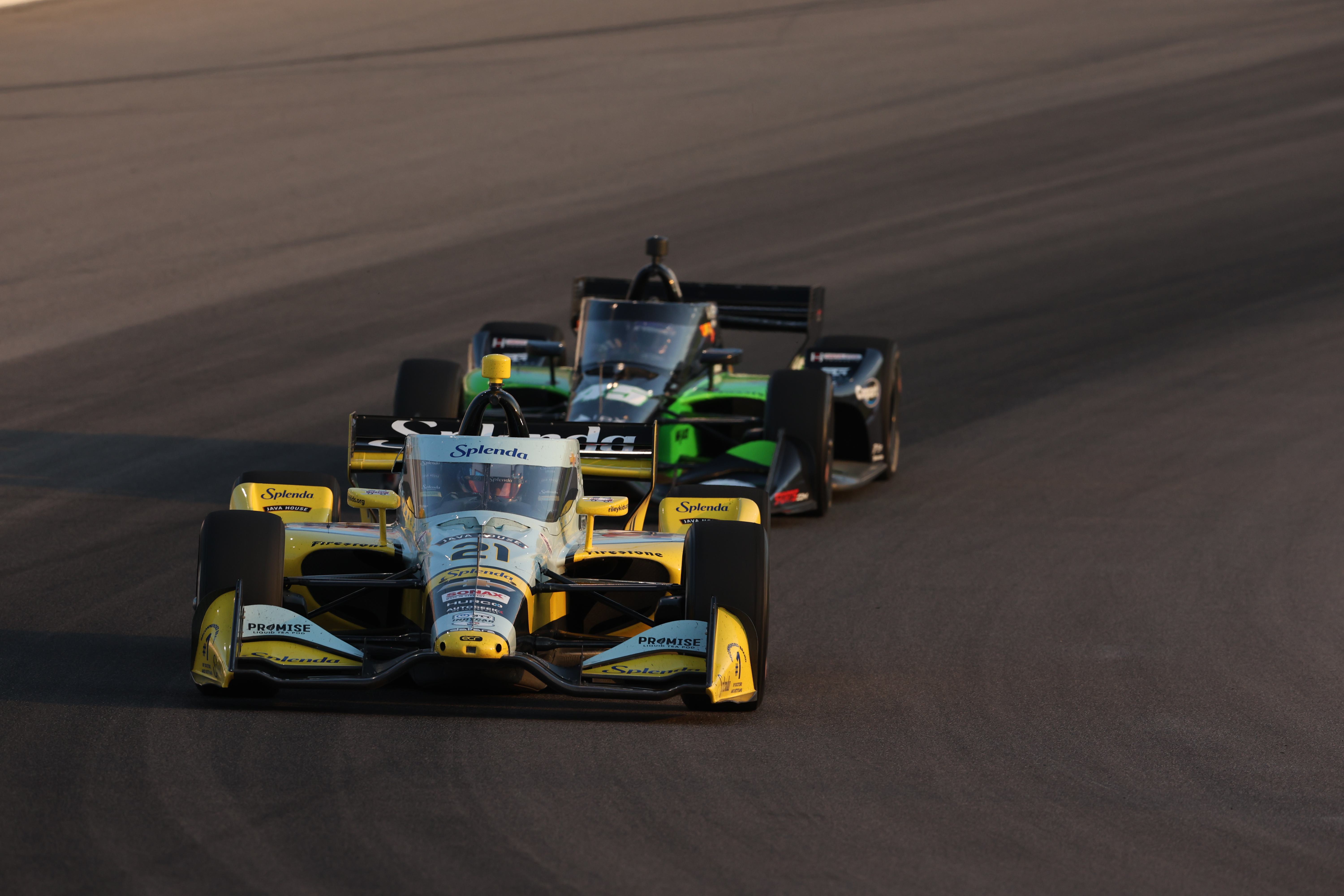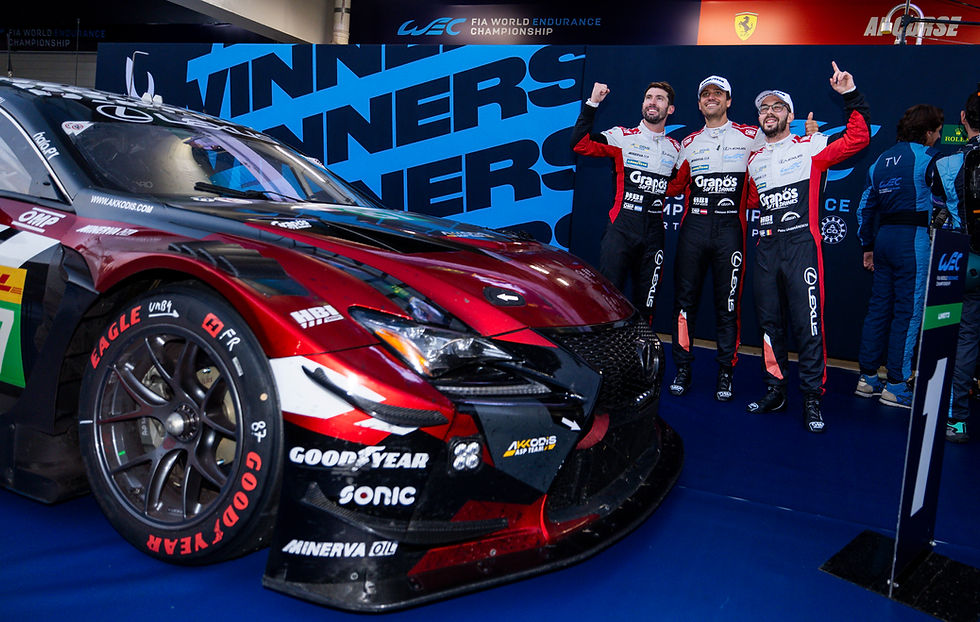F1’s All-Female Series: A Glorified Afterthought
- Kanzah Maktoum

- Mar 10, 2023
- 5 min read
Updated: Jan 3, 2025
Written by Kanzah Maktoum, Edited by Vyas Ponnuri

Formula 1 recently announced their new series F1 Academy: An all-women racing series feeding into Formula 3, and is set to run from 2023 to 2025 at seven venues around the world. Historically, motorsport has been male-dominated, and there has been little representation of women in the sport, from drivers to engineers to journalists. The new feeder series is part of a bigger push for female representation, and getting women of all ages on the track with young driver programs. However, this is not the first instance of an all-women racing series in the sport. In 2018, a free-to-enter category named “W Series” was created, to remove barriers for women to get into motorsport. After the cancellation of the final three races of its latest season due to issues with funding and its undetermined future, many are left to wonder whether W Series did enough to get women into higher categories. The announcement of F1 Academy raises questions regarding its goal of helping women progress up the ladder to Formula One.

Funding a seat in junior formulae is an expensive task. Drivers require around $500,000 to compete in Formula 4 for one season, and an eye-watering $3 million for Formula 2. F1 has announced that their new F1 Academy has an entry fee of $150,000, and will feed drivers into their F3 championship. In contrast, W Series was a category that removed this entry fee, thereby dismantling the financial barrier, and providing beginners a chance in a junior category. However, this meant the category was under major financial strain.
A problem stemming from this financial strain, coupled with the expensive entry fees to higher categories, meant that W Series was unable to promote its drivers to higher categories. British driver Jamie Chadwick remains in the Williams Racing Driver’s Academy for her fifth year, and her fellow racer Jessica Hawkins is a driver ambassador for Aston Martin Aramco Cognizant F1 Team. Even with the $500,000 cash prize for the champion of each season, Chadwick, the winner of all three seasons of the series, was unable to secure a seat in F2 or F3. At times, male drivers have struggled to gather funding, and it’s not a problem W Series themselves can solve.
Roberto Baldea, a motorsport content creator from Canada, said, “There's F1 tests that force teams to bring in a junior driver. I feel like this could be a great opportunity to bring women to do tests in actual Formula One cars on a race weekend,” This could ensure women are actually getting time on the track, apart from being in supporting roles.
“From my experience, I think that a lot of men around the motorsport space don’t believe that women will be as successful as men can be. They might go, ‘Oh, Jamie Chadwick could make it in Formula 2 or Formula 3’ but they don't see this vision of women succeeding at the very top, so there’s no point in investing if you don’t think a driver is going to be successful,” said Amelia Taylor, a motorsport journalist based in the UK.
Mohammed Ben Sulayem, president of the FIA, the governing body for motorsport, was quoted saying in 2001 that he does “not like women who think they are smarter than men”. Ever since the quote resurfaced, it has increased concerns over the existing sexism in the sport.
“That's a sexist comment in and of itself,” said Taylor. “But it's also important to remember that that's the man who is making some of these decisions for the progress that women make…I think you have to recognize that when women see these comments, they don't feel welcome.”
Baldea also suggests that more should be done, as the F1 Academy impacts women already taking part in other categories, and not young girls who are looking to get into karting. “We need to tackle, let's say, the roots of the problem, and that is in karting. There's just not enough girls and women who get into karting for that to be because of social judgments and expectations,” he stated. “The odds are just going to be more favorable for seeing a woman in Formula One, let's say because there's just going to be even more women at the base.”
Social media has emerged a platform for hate against women. Formula 1 launched its “Drive It Out campaign” to recognise verbal and online abuse, and to establish that it is unacceptable. Female fans have complained about feeling demeaned and questioned on social media, on whether they are “real fans”. Jennifer Howe, a motorsports fan from Australia, said, “I do like the sport for the sport, but even if someone did like the sport just for the drivers, I don’t think it's actually doing any damage, like it's gaining viewership, it's gaining fans and they're going to make it more accessible to more people.”
But social media also increased representation, having become a platform for women to express their interests in the sport, with content creators such as Lissie Mackintosh forming a community for fans of the sport online. Baldea said, “They've sort of created representation because they didn't see content about them, and they created content that they wanted to see.” W Series has established that there is a place for women in the sport by sharing their experiences online to inspire others.
“I think just things like W Series, for example, on the growing representation of women in sport overall have hugely boosted the profile of women,” said Taylor. “I think it's already helped us to really help women in every aspect of the sport, to gain more visibility for everyone around the sport, to recognize that women are here and they play such a huge role…people will start to recognize that we need to be here.”
F1 Academy aims to promote equity in open-wheel racing. According to Howe, people shouldn’t complain about women getting this opportunity for lower prices, as it isn’t taking anything away from other drivers. Rather, it is its own thing: An all-women series being a catalyst for representation. Alexandra Bultman, another fan from the Netherlands, said, “The first woman I saw in motorsport was Susie Wolff. I think it really motivates me that women can do the same as men and achieve it if they want to. So yes, it changed my perspective.” Susie Wolff was recently announced as the Managing Director of F1 Academy.
In a sport where women have been historically under-represented, W Series provided a stepping stone for drivers and became a platform for representation. It made a statement regarding the existence of women in the sport, and that they deserve a place too, and no matter its shortcomings, the exposure it gave women in the sport is undeniable.










Comments